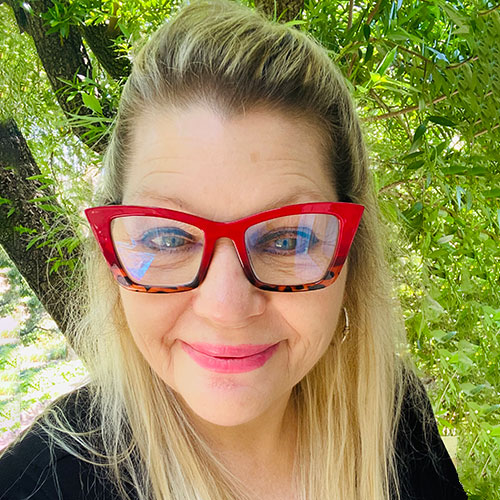Our Dual Diagnosis Treatment Centers in California
At Align Recovery Centers, we believe a substance abuse problem rarely exists without the underlying cause. Co-occurring disorders therapy is a specialized treatment that addresses the complex challenges faced by people with mental health and addiction issues. That is why we focus on both mental health and addiction at our dual diagnosis treatment centers in Northern California.
Dual diagnosis, commonly referred to as co-occurring disorders therapy, denotes the simultaneous occurrence of a mental health disorder and a substance use disorder within an individual. This convergence suggests that the person faces challenges from mental health ailments, such as depression or anxiety, and substance misuse issues, like alcohol or drug addiction. It’s estimated that 7.7 million Americans grapple with these comorbid illnesses. This number highlights the need for specialized treatments to address both disorders concurrently.
Align Sonoma offers a dual diagnosis treatment program integrated with our detox and inpatient addiction treatment services. Contact our admissions team today to learn more about our Dual Diagnosis Treatment Centers in California.
What is Dual Diagnosis?
Dual diagnosis, commonly termed co-occurring disorders, denotes a situation where an individual faces both a mental health disorder and a substance use disorder simultaneously. This layered complexity implies that not only is the person wrestling with mental health concerns such as depression, anxiety, or even PTSD, but they are also contending with substance misuse challenges. Whether it’s alcohol, opioids, stimulants, or other illicit drugs, the battle is intensified. Such coexistence of disorders often makes diagnosis, treatment, and overall recovery more intricate and demands a comprehensive and integrated treatment plan.
What Causes Dual Diagnosis/Co-Occurring Disorders?
Understanding the causes of co-occurring disorders can be complex. Some people with mental health issues may use drugs or alcohol to cope, leading to addiction. Others might start using substances casually, which over time, can worsen or spark mental health problems. Several factors can play a role:
- Environmental Factors: Issues like an unstable home, drug exposure, or enduring stress can increase risk.
- Traumatic Experiences: Accidents, abuse, or significant losses can trigger mental and substance problems.
- Genetic Predispositions: Some have a genetic tendency towards addiction or specific mental issues.
- Brain Chemistry: Brain imbalances can lead to both mental disorders and addiction
What Are Common Co-Occurring Disorders?
Individuals grappling with substance use disorders often face a range of mental health challenges that can complicate their recovery journey. These co-occurring disorders are prevalent and may include:
Depression
Depression is a mood disorder characterized by persistent feelings of sadness, hopelessness, and a loss of interest in activities. Those suffering from depression may turn to alcohol or drugs as a means of numbing their emotional pain or attempting to elevate their mood, creating a dangerous cycle of dependence that worsens their mental health.
Anxiety Disorders
Anxiety disorders encompass various conditions, such as generalized anxiety disorder, panic disorder, and social anxiety disorder, which involve intense feelings of fear and worry. Many individuals may find that substances like alcohol or certain drugs provide temporary relief from their anxiety symptoms. However, reliance on these substances can lead to increased frequency of use and heightened anxiety when not using them, perpetuating the problem.
Bipolar Disorder
Bipolar disorder is marked by extreme mood swings, including episodes of mania—characterized by elevated mood, increased energy, and impulsive behavior—and episodes of depression. Substance use can exacerbate these mood fluctuations, leading to more severe manic or depressive episodes and complicating the individual’s ability to manage their condition effectively.
Schizophrenia
Schizophrenia is a serious mental disorder that affects how a person thinks, feels, and behaves, often manifesting through symptoms such as hallucinations, delusions, and disorganized thinking. Engaging in substance use can further intensify these symptoms, hinder treatment adherence, and may even trigger the onset of the disorder in individuals predisposed to it.
PTSD
PTSD, or post-traumatic stress disorder, is a mental health condition triggered by experiencing or witnessing a traumatic event. Many individuals with PTSD may resort to alcohol or drugs as a coping mechanism to avoid distressing memories or emotions associated with their trauma. This can lead to an unhealthy reliance on substances, making it more challenging to address the underlying trauma and heal.
ADHD
Individuals with ADHD may turn to substances as a means to self-medicate, seeking to calm their restlessness or improve focus.
Understanding and identifying co-occurring disorders is vital for effective treatment. Many individuals turn to substances to self-medicate or alleviate mental health symptoms, but these substances can often amplify these challenges. This cycle complicates recovery, highlighting the need for specialized care that addresses mental health and substance misuse. A comprehensive approach is essential, given the complex nature of dual diagnosis.
Learn More About Our California Dual Diagnosis Treatment Center
Struggling with both mental health challenges and substance use can feel overwhelming—but you don’t have to face it alone. At Align Recovery Centers, our California dual diagnosis treatment centers provides integrated, personalized treatment to address both conditions simultaneously. Contact us today to find out how our expert team can help you or a loved one start the journey toward healing and long-term recovery.
Request a Confidential Callback

Prevalence of Dual Diagnosis
Dual diagnosis is more common than most people realize. Many individuals in addiction treatment centers also exhibit mental health disorder symptoms. Moreover, according to studies, individuals with a mental illness are twice as likely to experience a substance use disorder and vice versa. This underscores the need for specialized treatment options that address the intricate challenges of dual diagnosis.
Dual Diagnosis Treatment - Align Recovery Centers in Northern California
Align Recovery Centers is one of Northern California’s top-tier dual diagnosis treatment centers in the heart of Sonoma, CA. Recognizing the complex nature of co-occurring disorders, our approach to treatment is holistic, comprehensive, and tailored to individual needs.
How we treat is integral to our success. Our journey with patients begins with an in-depth assessment to gauge the extent of mental health and substance use challenges. By addressing both disorders simultaneously, we elevate the chances of sustained recovery. Through applying evidence-based therapies, enriching psychoeducation, and robust support services, our mission is to equip our patients with the resilience and tools they need to navigate the complexities of recovery and embrace a healthier life.
Align Recovery Centers offers integrated evidence-based treatment and psychotherapy such as cognitive behavioral therapy (CBT), dialectical behavioral therapy (DBT), and group therapy to provide support for both substance abuse treatment as well as mental health treatment. These various interventions and modalities complement each other for a well-rounded approach to wellness and lasting recovery. Our dual diagnosis rehab programs are offered at the residential treatment level of care and are tailored to the specific needs of each client.
Finding the proper support is paramount when battling the challenges of co-occurring disorders. Align Recovery Centers is committed to being that steadfast beacon of hope and healing. If you or a loved one is seeking dual diagnosis treatment centers in Northern California, we’re here to help. Embark on your journey to comprehensive healing with us.

Dana, with over 20 years in addiction therapy and counseling, is the Executive Director at Align Recovery Centers. Holding a B.S. in Human Services and an M.A. in Counseling & Psychology, she’s both an Associate Marriage and Family Therapist and a Substance Use Disorder Certified Counselor. Specializing in DBT and CBT, Dana effectively manages both residential and outpatient programs. Her interests include gardening, cooking, and delving into psychological research in her spare time.